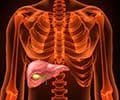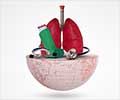Information about Glycopyrrolate
Generic Name : GlycopyrrolateUp-to-date prescription details regarding Glycopyrrolate are provided here.
Pronunciation : glye-koe-PYE-roe-late
Learn the correct pronunciation of the Glycopyrrolate, understand it's uses, recommended dosages, its indications, how to take, when to take, when not to take, side effects, special precautions, warnings and its and its storage instructions.You will also find a list of the medication's International and Indian brand or trade names, as well as its pricing information. For verification of the information presented on this page or for additional clarifications, it's advisable to consult your doctor.
Trade Names/Brand Names of Glycopyrrolate
India :
Pyrolin (2 mg) |
Camolate (0.2 mg) |
Glyco |
Pyrolin (0.2 mg) |
Glycolate (0.2 mg) |
Glyco P (0.2 mg) |
Licolate 0.2mg Injection |
Glyprolate (2 mg) |
Hiclair (2 mg) |
Lycolate (0.2 mg)
International :
Robinul, Cuvposa
Other Name(s) of Glycopyrrolate
Glycopyrronium BromideWhy is Glycopyrrolate Prescribed? (Indications)
This medication is a muscarinic anticholinergic agent, prescribed for peptic ulcer in combination with other medicines and also used in anesthesia as preoperative medication. It reduces acid and saliva secretions.When should Glycopyrrolate not be taken? (Contraindications)
Contraindicated in patients with glaucoma, trouble urinating (eg, bladder neck obstruction), certain stomach or bowel problems (eg, stomach or bowel blockage, bowel muscle problems, severe ulcerative colitis, toxic megacolon), certain esophagus problems (eg, achalasia, reflux), or myasthenia gravis, and hypersensitivity.What is the dosage of Glycopyrrolate?
IV/IM: Peptic Ulcer: 100mcg/kg, 3 to 4 times/day. In anesthetic: 4mcg/kg over 1hr.How should Glycopyrrolate be taken?
It comes as a solution for injection, administered by a healthcare provider.What are the warnings and precautions for Glycopyrrolate?
•Caution should be exercised in patients with history of pregnancy, breastfeeding, heart disease, increased level of thyroid hormone, liver or kidney impairment, enlarged prostate, diarrhea, fever, children and elderly people.It may cause ileus (abruption of gastrointestinal motor activity) or megacolon in patients with ulcerative colitis.
Patient may develop dizziness or drowsiness; avoid driving a car or operating machinery while taking this medication.
Avoid alcoholic beverages.
Use appropriate solution if you are wearing contact lenses while taking this medication.
What are the side effects of Glycopyrrolate?
Most common- Dry mouth, difficulty in urinating, headaches, diarrhea and constipation.Central Nervous System- Drowsiness, dizziness, problem in sleeping, headache, confusion and nervousness.
Heart- Irregular heart beat, cardiac arrest, high/low blood pressure and prolonged QT interval.
Skin- Itching, rash, redness and dry skin.
Respiratory- Respiratory arrest.
Gastrointestinal- Nausea; vomiting and loss of taste.
Hypersensitivity- Severe allergic reactions including anaphylactic/anaphylactoid reactions and hives.
Genitourinary- Impotence.
Miscellaneous- Fever and decreased sweating.
Potentially Fatal - Severe anaphylaxis.
What are the other precautions for Glycopyrrolate?
Avoid hot environments.What are the storage conditions for Glycopyrrolate?
Injection: Store at 20-25°C. Store it at room temperature and in airtight container.Schedule : H
Prescription drugs - Drugs to be sold only under the prescription of a Registered Medical Practitioner.








